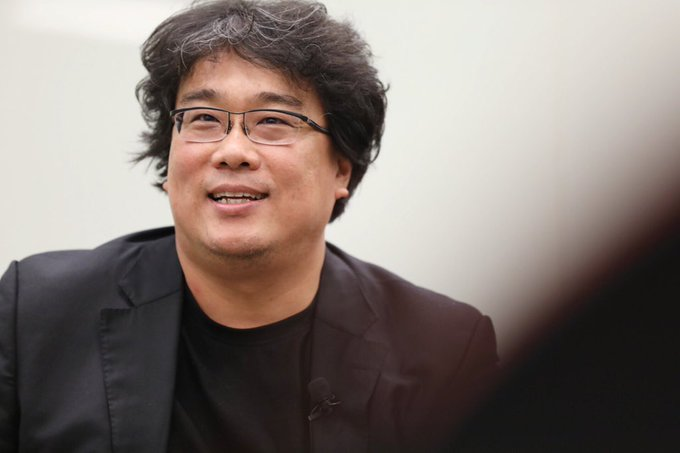Fresh off the premiere and Palm d’Or win for his critically acclaimed film “Parasite”, writer-director Bong Joon-ho sat down with the University of Texas at Austin to discuss the film, his methods of storytelling, and the trajectory of his career thus far.
By Namrata Prakash
Photo Courtesy of Texas Moody
A spacious auditorium with a capacity of 350 people overflows to see this director, and a second one fills up to just watch the livestream of his chat. His filmmaking career has spanned the course of a few decades, and Joon-ho has solidified his presence in the international film industry with notable titles such as “Memories of Murder” (2003), “Mother” (2009), “Snowpiercer” (2013) and “Okja” (2017). Famous for his black comedy, commentary on class stratification, and Korean-influenced focus, Joon-ho has found a way to transcend physical border regarding the subject matter of his features.
Joon-ho was joined in conversation by the University of Texas Radio-Television-Film Department Chair, Noah Isenberg, who confessed that he was a Sociology major who never attended class. He was obsessed with watching movies, however, and staying up past his bedtime to watch films on an American broadcasting channel served as his most coveted education. Perhaps his access to features on a small screen is why he isn’t cynical about streaming services like Netflix. Despite his encouragement for everyone to watch films in theatres, he understands the accessibility and convenience for viewers at home.
Without spoiling “Parasite”, Joon-ho mentioned the notable difference in audience response from the U.S. and Korea. Though praise is universal, U.S. audiences see it as more fictional and unconventional, while “Korean audiences see it as close to reality,” said Joon-ho. He also reiterated the connection between scent and class conflicts in the film, and said that people literally smelled themselves when leaving the screening.
When writing his films, Joon-ho considers the actors first when drafting the movie. A frequent collaborator of Song Kang-ho, a director that always has an actor in mind when writing his scripts, both directors use the camera to accentuate the performance of their chosen stars. Many times, actors come to him with pages and pages of backstory for their characters, but Joon-ho likes to maintain the curiosity of their background even throughout the process of filming.
Hinting at an upcoming film about a disaster in Seoul, in which Joon-ho is very adamant on shooting on location with an all-Korean cast, Joon-ho ends the talk with a few audience questions and a motto for any student filmmakers who are trying to get their work out there: “Be faithful to your obsessions.”
Seems fitting for a man who’s next film has been 18 years in the making.












































